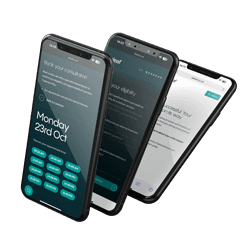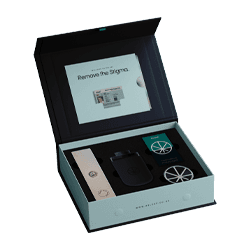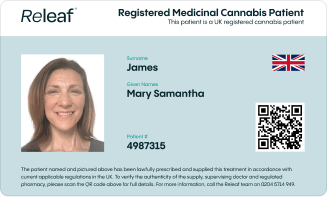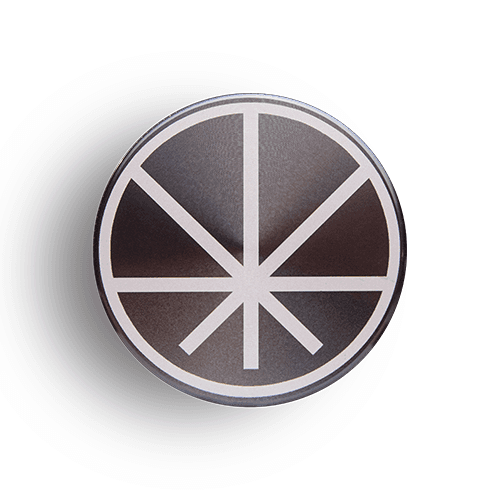CBD comes in a broad selection of product types, (tinctures, edibles, dried flowers, oils and more), with CBD oil being among the most commonly prescribed option for anxiety sufferers in the UK.
Unsurprisingly, and in large part due to the legal, political, and social climate regarding cannabis in the past century, many people dealing with anxiety have never looked at the plant as a viable treatment option. However, with the recent legalisation of medical cannabis in many countries (the UK included), as well as increasing access to CBD oil products, more and more people are turning to CBD as a natural way to potentially ease their anxiety symptoms.
So, the big question is, does CBD oil actually help in reducing the symptoms of anxiety, and if so, how long does it take to be effective?
The short answer is, potentially – or, at least that's what the current science is alluding to, with more research needed. Timing for the treatment to be possibly effective is a nuanced and multi-faceted issue and one that deserves a longer answer.
Let's get out the microscope, put some white jackets on, and have a look in detail at the current scientific evidence to see what it tells us.
How CBD works for anxiety
We mentioned in the intro that more research is needed before we can make any sweeping claims about how CBD works exactly, but there are some indications from recent papers and studies that point towards CBD affecting the way the brain processes serotonin.
Serotonin is a neurotransmitter related to mood and well-being, and with a nickname like the “feel-good” hormone, it should come as no surprise that lower levels of serotonin are linked to higher rates of anxiety.
CBD has been proven to activate the 5-HT1a receptor, and this activation is thought to lead to a boost in serotonin production. Mood disorders such as anxiety are thought to be closely linked to the dysfunction of 5-HT1A receptors, with this study suggesting that CBD may be an effective treatment for anxiety-related disorders due to its potential ability to restore proper serotonin levels.
It is also believed that CBD may block the enzymes responsible for breaking down the naturally-occurring endocannabinoids (cannabinoids produced by the human body). Anandamide, one of these endocannabinoids, is linked to emotions of happiness and contentment, and higher brain processing. This study, while not looking at anxiety, reports “that inhibition of anandamide deactivation” is produced when CBD is administered.
The anecdotal evidence is also plentiful, with many people who suffer from anxiety reporting a reduction in symptoms after taking CBD oil on a regular basis.
Factors that affect CBD's onset of action
There are a couple of key factors that likely affect how long it could take for CBD therapy to become effective for anxiety reduction. The size of the dose taken, how often this dose is consumed, and the method by which the dose of CBD is delivered all need to be taken into account.
Before we dive in, it is important to state that everyone reacts to treatments differently, and consultations with a healthcare professional are vital before making any changes to your current treatment plan.
Let's look at dosage size first. In general, higher doses of CBD seem to be more effective than lower doses, though this isn't a fixed rule. Finding the right dose for your particular needs can take a bit of trial and error, but there are some general guidelines that can be followed. Current research points to a dosage size of between 300 and 600 mg to be possibly effective in reducing subjective anxiety symptoms. This study showed that at this dose size, the antianxiety effect may be felt within thirty minutes to two hours.
Another trial, which looked at CBD, anxiety, and sleep hours, showed that doses as low as 25 mg may also be effective at reducing anxiety, although the treatment was enacted for 4 weeks before any noticeable changes occurred. It also concluded that “CBD appears to be better tolerated than routine psychiatric medications”
The frequency of CBD consumption for optimal anxiety reduction is still being debated, but a good deal of registered cannabis-prescribing doctors agree that a daily dose could be the best way forward for maximum effectiveness.
The method of administration also plays a key role in how quickly CBD acts on the body, with sublingual CBD oil administration (placed under the tongue) being among the most often prescribed option for anxiety. This method allows CBD oil to be absorbed directly into the bloodstream and bypasses the first-pass metabolism, in which substances are broken down by the liver before reaching the bloodstream.
Then there are factors such as your metabolism, your diet, the quality of CBD oil being administered, and genetics that can all play a part in how quickly, or effectively you may react to CBD treatment for anxiety. That being said, these are all factors that a doctor can help guide you through.
Conclusion
CBD is leading the charge of new, all-natural treatment options for anxiety reduction. While the research is still in its infancy, the results are promising. CBD treatment options are best discussed with healthcare professionals, as the combined effects of CBD dosage size, frequency, and administration methods can affect your individual response to CBD.
Releaf understands that medical cannabis can be life-changing for many people. That's why we offer tailored monthly packages based on your cannabis prescription, specialist consultations for medical cannabis, and a unique medical cannabis card for protection.





